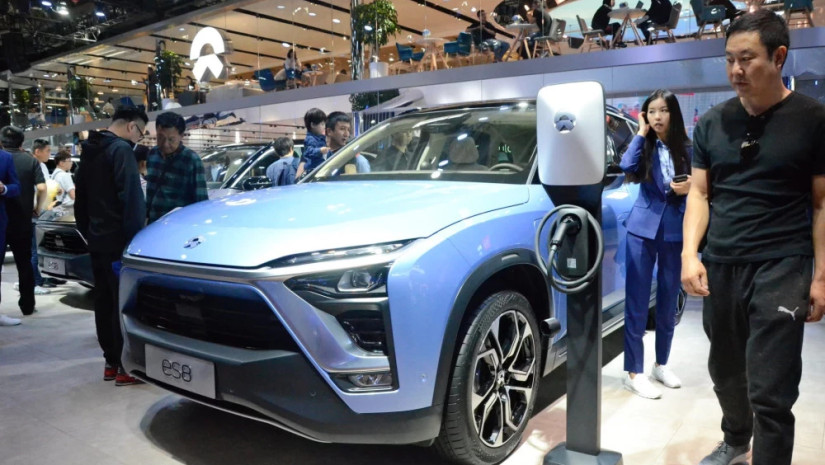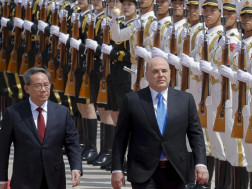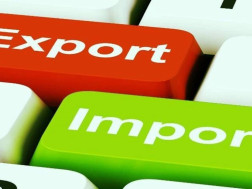France is ratcheting up pressure on Brussels to hit back against what it sees as China's unfair advantages in export sectors such as electric vehicles — but the EU is wary about the risks of triggering an all-out trade conflict with Beijing.
Over recent years, Brussels has upgraded its trade defense arsenal and now Paris wants the European Commission — which steers trade policy for the 27-country bloc — to use this new weaponry and show that it is not simply posturing.
Whether France will win round the rest of the EU, especially Germany, is likely to top the agenda when EU leaders meet at a summit later this month. Berlin and others were stung by Brussels' disastrous attempt to use EU trade tools against Beijing in 2013 and are likely to advocate a more cautious route so as not to provoke Beijing into rolling out countermeasures against EU industry.
The most controversial French idea is that the EU should open a probe paving the way for tariffs on Chinese electric vehicles. The main European fear is that Beijing can use lavish state support to churn out unfairly cheap vehicles that can flood the EU market at a speed and scale that threaten the EU's own e-car production.
The European Commission is discussing whether to launch an investigation that could allow Brussels to impose additional levies, known as anti-dumping and anti-subsidy tariffs, on such cars, two senior officials told POLITICO.
Internal Market Commissioner Thierry Breton said he was "very much in favor of opening a dumping investigation into electric cars as soon as possible." The European Commission had no further comment.
The electric vehicles probe is not the only anti-China offensive that the European Commission's chief trade enforcement officer, Denis Redonnet, is exploring: Brussels is also considering its first case under a new international procurement instrument against Chinese medical devices, three EU officials said. Brussels threatened earlier this year that it was “ready to deploy” the tool for the first time in 2023.
The goal is to push China into opening up its public procurement market by threatening to close the EU’s own highly lucrative public tender market in retaliation.
European Commission President Ursula von der Leyen said earlier this year in Beijing that medical devices “are being excluded from the market by discriminatory ‘Buy China' policies,” which is a longstanding concern of European industry.
In addition, Brussels is also looking into the Chinese rail industry, two of the officials said.
The Chinese will have seen this coming. Led by France, the EU has been building more assertive trade instruments for years to make sure the bloc stands ready when it is faced with unfair trading practices or "coercion" — Brussels speak for economic blackmail.
“We must not rule out considering … customs tariffs,” Economy Minister Bruno Le Maire said last month. “The issue may be provocative, but when we see the number of subsidies that are granted to certain products that will arrive tomorrow on the European continent, let’s not close the door to the issue of tariffs."
On Thursday, a French economy ministry official said the idea of potentially imposing tariffs on Chinese electric cars is “in line with our position: no naivety and fair competition.”
German-French rift loading
The French haven't won the argument yet, though.
Brussels has bitter memories of using EU trade policy to confront China. When the EU moved toward anti-dumping and anti-subsidy measures against China for undercutting the European market in solar panels and telecommunications equipment in 2012 and 2013, it brought Brussels and Beijing to the brink of a trade war.
In various stand-offs, China has proved expert at playing EU countries off against each other in games of divide and rule, threatening, for example, to favor Boeing planes over Airbus, or not to buy French and Spanish wine. Using exactly those kinds of tactics, China forced then EU Trade Commissioner Karel De Gucht to back down from his 2013 offensive against Beijing.
Still, the electric car market is a political priority. In a speech in May, French President Emmanuel Macron argued the EU should not allow China to win in the car sector in the same way that it did with solar panels. “We must not repeat in the electric car market the mistakes we made with photovoltaics, where we created a dependency on Chinese industry and made its manufacturers prosper,” he said.
Beijing has a habit of lashing out and escalating disputes when the politics heat up: After Brussels imposed sanctions against officials involved in a human rights crackdown against China’s Muslim Uyghur minority, Beijing sanctioned a raft of academics and European lawmakers.
This overblown reaction ultimately killed an EU investment deal with China, which former German Chancellor Angela Merkel muscled over the finish line in late 2020.
But China is also known for hitting back more subtly. Last year, Beijing silently blocked most trade with Lithuania after the Baltic state deepened ties with Taiwan. But the Chinese government denied involvement, in what it said were IT problems with its customs platform and business’ own preferences.
German officials are already warning that retaliation by Beijing could hurt exporters to China, as well as make life harder for European companies that have invested heavily there. China could also threaten to limit investments in Europe.
That potential backlash is piling stress onto industry, especially given deteriorating geopolitical relations.
“[We'd] rather not [have restrictions],” said one senior German car executive on condition of anonymity, as they were not cleared to speak publicly. “It could have unwanted consequences for EU-China trade relations. Should there actually be restrictive measures, the Chinese side will not leave this unanswered.”
The Chinese market has long been a cash cow for big German carmakers, with the likes of Volkswagen and Mercedes-Benz reaping profits from the sale of premium combustion engine models in what has fast become the world’s largest clean car country.
But with their unparalleled dominance in battery cell technology, local brands, such as BYD, Great Wall and Nio, are eroding the market share of foreign carmakers in both the mass market and premium segments, putting at risk billions of euros in revenue for German carmakers.
That makes unrestricted access to the Chinese car market essential for big German brands, but it’s a different story for French competitors such as Renault and Stellantis as they are less active in China and more sensitive to low-cost EV producers.
“French [carmakers] are highly exposed to their own domestic market,” said Matthias Schmidt, an auto analyst. “If the domestic dominance of the French market dilutes on the back of new Chinese market entrants, those French carmakers will be in huge trouble, and so will the French economy.”
Economic security
Still, much has changed since the solar panel row a decade ago. Across the bloc, a realization is dawning that Europe needs to take a more assertive stance toward Beijing.
Even in Germany, officials now fear sales of Chinese electric vehicles will crush Europe's car industry — one of the continent's biggest employers and cash cows.
Next week, von der Leyen will unveil a new EU economic security strategy, pouring a national security sauce over the bloc’s economic policy. The strategy, due to be discussed at an EU leaders' summit in June, is the latest sign the EU is moving away from its decade-old liberal free trading policy towards a more defensive posture.
An anti-dumping probe into Chinese electric vehicles has a good chance of success, according to Elvire Fabry, a trade expert at the Jacques Delors Institute in Paris.
“It is very likely that the Commission will soon have all the information it needs to put in place anti-dumping and anti-subsidy measures effectively, and we have the precedent of solar panels,” she said, predicting that this time things might be different and European countries would be more united.
“The context has deeply changed, the lessons of the solar panel case have been learned, and there is no question today of repeating this on the issue of electric vehicles,” she said, Politico reports.
















